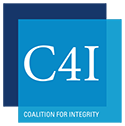Many countries have established laws, regulations and procedures to prevent money laundering. In the United States, for example, financial institutions have an obligation to file suspicious transaction reports, conduct customer due diligence and engage in anti-money laundering, or AML, compliance. However, as a recent World Bank report highlights, in many countries, both developing and developed, including in the United States, there are still significant loopholes allowing corrupt individuals to launder and ultimately enjoy their illegally obtained gains. Read more

